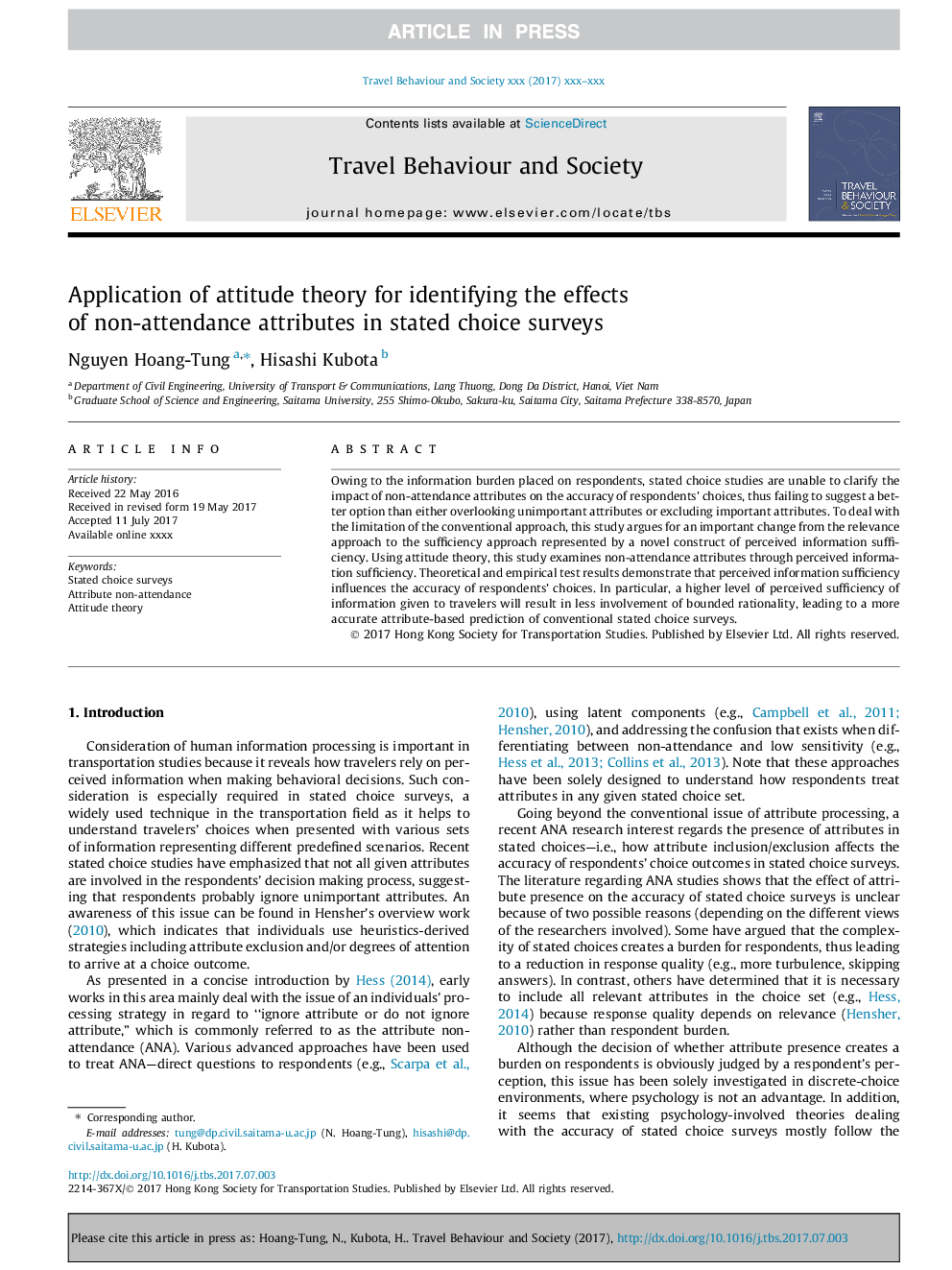| Article ID | Journal | Published Year | Pages | File Type |
|---|---|---|---|---|
| 6576272 | Travel Behaviour and Society | 2018 | 8 Pages |
Abstract
Owing to the information burden placed on respondents, stated choice studies are unable to clarify the impact of non-attendance attributes on the accuracy of respondents' choices, thus failing to suggest a better option than either overlooking unimportant attributes or excluding important attributes. To deal with the limitation of the conventional approach, this study argues for an important change from the relevance approach to the sufficiency approach represented by a novel construct of perceived information sufficiency. Using attitude theory, this study examines non-attendance attributes through perceived information sufficiency. Theoretical and empirical test results demonstrate that perceived information sufficiency influences the accuracy of respondents' choices. In particular, a higher level of perceived sufficiency of information given to travelers will result in less involvement of bounded rationality, leading to a more accurate attribute-based prediction of conventional stated choice surveys.
Related Topics
Life Sciences
Environmental Science
Management, Monitoring, Policy and Law
Authors
Nguyen Hoang-Tung, Hisashi Kubota,
